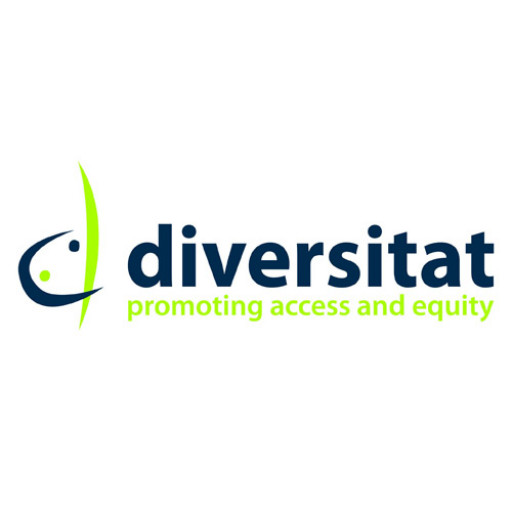International Horticulture at Leibniz University Hannover is a comprehensive and interdisciplinary program designed to prepare students for a successful career in the global horticultural industry. The program provides an in-depth understanding of plant science, horticultural practices, sustainable cultivation methods, and innovative technology applications in horticulture. Students will explore a wide range of topics including plant physiology, landscape design, pest and disease management, and environmental conservation. The curriculum emphasizes practical skills through laboratory work, field projects, and internships, enabling students to apply theoretical knowledge in real-world situations. Additionally, the program encourages international collaboration and cultural exchange, preparing graduates to work in diverse settings worldwide. The program is suitable for students interested in careers such as horticultural research, landscape planning, nursery management, and sustainable agriculture. Graduates will possess a solid foundation in both scientific principles and practical techniques, making them well-equipped to address current and future challenges in horticulture, such as climate change, urban greening, and food security. With access to state-of-the-art facilities and close partnerships with industry and research institutions, students will have ample opportunities for hands-on learning and professional development. The program aims to foster innovation, environmental responsibility, and entrepreneurship among its students, preparing them to contribute positively to the global horticultural sector. Overall, International Horticulture at Leibniz University Hannover offers a unique educational experience that combines academic excellence with practical expertise, equipping graduates with the skills needed to excel in a dynamic and vital industry around the world.
Educational organisation
Depending on their major field, students are assigned to a supervisor who guides the student through his/her research and course selection. The student is fully integrated into the supervisor's working group with access to his/her office, laboratory, climate chamber and other research facilities. Planning of the research project starts at the beginning of the first semester, and research proposals are presented in the second half of this semester. Parallel to the research work, students take courses. Some of these are compulsory for all, some elective according to the specialisation and interest of the individual student. More than 40 courses are available. A four-week internship in a private company or public institute with the objective of obtaining practical experience is also part of the programme.Study abroad unit(s)
Depending on the research project, field surveys and data collection for the Master's thesis are possible.Internships
An important part of the programme is a four-week internship in a private company or public institute with the objective of obtaining practical experience in the field of horticulture. The internship takes place either in March or in the summer of the first year of study. We have had placements in private laboratories, research institutes and agricultural administration, large and small private horticultural producers and trading companies, biotech companies, and botanical gardens.Forms of assessment
Written and oral examinations; final viva voce of MSc thesisCourse objectives
Our graduates are guided in scientific practice, in which they acquire solid experience as junior researchers. Our course objective is to qualify young professionals as independent and critical scholars who successfully tackle scientific and professional challenges in their future career. In addition to technical knowledge, our graduates acquire key qualifications in problem solving, methodological skills, communication and ITC and social and individual competencies such as intercultural communication and conflict resolution, cooperation, motivation, creativity, flexibility, endurance, and autonomy. With a sound scientific background, our graduates have a large number of professional opportunities. Many of them take leading positions in industry or in public administration; another large proportion pursues a scientific career.Language requirements
English; if English is not the native language, an international language certificate is necessary (TOEFL 550 points, IELTS band 6 or other relevant certificate).Academic requirements
Successful completion of an undergraduate academic programme with above-average results at a college/university or polytechnic in the field of horticulture, agriculture, biology or a related subject with an internationally recognised qualification (preferably a BSc in horticulture, agriculture, biology or a related degree)Further details can be found in the regulations for admission.
Enrolment fees
Approx. 370 EUR as administrative fee, including semester ticket (public transport costs)Costs of living
Expenses per month:Rent, additional costs: 282 EUR
Food: 148 EUR
Health (health insurance, medicine, consultations): 60 EUR
Clothing: 49 EUR
Telephone, internet, etc.: 43 EUR
Other (cultural events, sports, leisure activities): 81 EUR
Total costs of living: 663 EUR
Administrative/semester fee: 84 EUR
Other study costs: 45 EUR
Total study costs: 129 EUR
Total costs: 792 EUR
Please see: http://www.international.uni-hannover.de/lebenshaltungskosten.html?&L=1
Job opportunities
Limited due to the very demanding course programmeFunding opportunities within the university
Some financial support is available towards the end of the studies from the International Office. There are no full scholarships.Arrival support
The Course Administration offers a variety of services and support to our international students. Students are assisted with arrival, accommodation, opening of a bank account, enrolling and obtaining a residence permit, and other administrative issues.The university's International Office organises an orientation week for new students at the beginning of each semester.
http://www.uni-hannover.de/en/internationales/index.php
Services and support for international students
A supervisory committee composed of three academics is formed for every MSc student. It consists of the main supervisor who is responsible for determining the subject of the research project and also for the organisational framework, and two additional supervisors who ensure that the student receives the necessary training for successful research. The supervisory committee holds three colloquia with each individual student. In the colloquium students present the progress of their research and discuss the progress of their studies with the supervisors.Every student in the Master's programme is given a workplace at the institute at which his/her research is carried out. On the one hand, the purpose of this is to achieve better association of the student with the subject. On the other hand, foreign students in particular can be given continual assistance regarding questions of everyday life through permanent contact with the staff members of the institute.
For DAAD scholars: a two-month intensive German course begins in early August. This year, the language learning is accompanied by a six-month online training which starts even prior to arrival in Germany.






